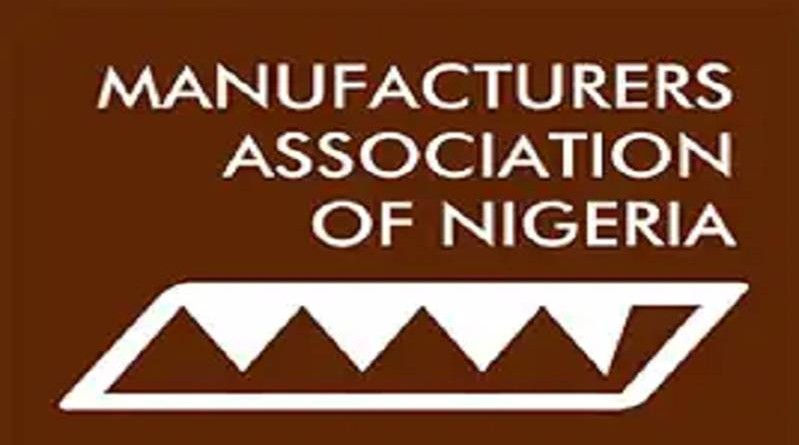Nigeria can become a key driver of intra-African trade in AfCFTA if guided by strategic country specific STUDY – MAN
MAN believes that Nigeria may become a big player and key driver of improved volume of intra-African trade in an African Free Trade Area AfCFTA with the right market offer mix, rules of origin, countervailing measures, dispute settlement mechanism, non-tariff and technical barriers provisions, amongst other protocols and annexures. The only way to guarantee this positive proposition is to ENSURE that our negotiating team is guided by a credible and strategic country specific STUDY.
TEXT OF AN ADDRESS PRESENTED BY DR. FRANK UDEMBA JACOBS, MON, PRESIDENT, MANUFACTURERS ASSOCIATION OF NIGERIA (MAN) AT A PRESS CONFERENCE ON MATTERS ARISING ON THE AFRICAN CONTINENTAL FREE TRADE AREA (AfCFTA) & OUTCOME OF THE LAUNCH OF AN INDEPENDENT STUDY ON THE POTENTIAL BENEFITS OF AFCFTA BY NOTN HELD ON JULY 24, 2018 AT MAN HOUSE, IKEJA, LAGOS.
Gentlemen of the Press, you are welcome to this Press Conference convened to give you an update on the latest development on the AfCFTA. I would like to thank you all for the commitment you have shown in conveying the right messages on this very important national issue that may define the future of our socio-economic landscape.
I would also like to express our deep appreciation of the resolute stand of His Excellency, President Muhammadu Buhari, GCFR in sustaining his decision to withhold his signature of the Agreement until he is convinced that Nigeria stands to benefit from the Agreement. Two necessary components of this requirement are the conclusion of a nationwide inclusive consultations by NOTN and positive outcome of a credible study that would reveal the potential impact of the agreement on the Nigerian economy. This is a clear demonstration of the commitment of His Excellency to the growth of the manufacturing sector; the preservation of the service sector, improvement of the wellbeing of citizenry and the advancement of the Nigerian economy.
MAN believes that Nigeria may become a big player and key driver of improved volume of intra-African trade in an African Free Trade Area with the right market offer mix, rules of origin, countervailing measures, dispute settlement mechanism, non-tariff and technical barriers provisions, amongst other protocols and annexures. The only way to guarantee this positive proposition is to ENSURE that our negotiating team is guided by a credible and strategic country specific STUDY. There is no wisdom in signing-on upfront only to end up struggling to find space in the accompanying Protocols and Annexures. We need to be certain that the Agreement is in sync and not constraining our extant economic policies, including the NIRP and the ERGP.
Distinguished members of the Press, you may recall that in March this year, I intimated you of our position that the Federal Government may withhold signing the AfCFTA framework on the following grounds
- No credible country specific study to show the potential impact of the AfCFTA.
- No specific attention was given to determine the cost and benefit analysis of the agreement;
- the sectors/sub-sectors that would benefit or be worse off as a result of the Agreement are unknown.
- No clear-cut recommendation on strategies that Government would adopt to enhance the capacity of the manufacturing sector to compete effectively.
Since March to date we have demanded answers to the following vital questions:
- What would be the impact of AfCFTA on the nation’s tax structure, Government revenue and the welfare of over 180million Nigerians?
- What will become of the industrialization and economic development aspirations of Nigeria?
- What would be the fiscal and monetary implications of AfCFTA on Nigeria?
- What are the justifications for agreeing to the proposed movement of 90% of tariff lines to 0% duty?
- What would become of non-tariff charges, levies, incentives, waivers and exemptions currently operational in Nigeria?
- What will be the fiscal implications of AfCFTA on the income of Governments and Regional Economic Communities?
- How will non-tariff charges viz-a-viz non-African countries be treated under the AfCFTA regime?
- What is the most ideal time frame for the gradual but progressive movement of 90% of tariff line to 0% duty?
- Which product lines have been agreed for liberalization, to be on exclusion and sensitive list?
Interestingly, this is almost four months, our concerns are yet to be addressed and we are still waiting for answers to these questions. We know that the response to these key questions are predominantly work in progress.
Although NOTN recently conducted and launched a study, the stakeholders are still considering the study in view of the observed glaring lapses. It is worrisome to observe that the study failed to address the concerns of manufacturers. Moreso is the fact that the outcome of the NOTN sponsored independent study on the potential benefits of AfCFTA on Nigeria fell short of standards and lack the much-needed information required to take an informed decision. MAN has since commissioned a study and we expect to have the report about a month from now.
In the light of recent developments, we considered it necessary to intimate you that an insignificant number of non-real sector operators in the Private Sector are tactfully recommending that Mr President should sign the agreement under the camouflage that majority of Nigerians and the Organised Private Sector agrees with their position. They are essentially not at home with the technicalities of a trade agreement of this magnitude. The pronouncement of this group of actors is not representative of the views of the Organized Private Sector of Nigeria.
It is pertinent to report that the Presidents of the Organized Private Sector at its meeting yesterday had in attendance the Manufacturers Association of Nigeria, the Nigerian Employers Consultative Association and the National Association of Small Scale Industries. They affirmed that our country should be circumspective on the decision to sign the AfCFTA and that we should await the outcome of a credible study that should guide our negotiations. Although, NASME could not attend the meeting, it is equally supportive of the position of the OPSN.
For the avoidance of doubt, we again request that Mr President should not sign the AfCFTA agreement until the outcome of a credible study so indicate, but graciously allow the nation’s team to resume participation in the negotiation processes ONLY to ensure that the country is abreast of developments. This will certainly not jeopardise or constrain the reservation of our assent, should we eventually decide that the Agreement is definitely not in our favour. It will only mean that, whilst keeping our eyes on the goings-on, we can continue with our much needed and sovereign path to determine whether we should sign-on or not.
Once again, I say thank you for your presence and rest assured that we will continue to count on your support as we deepen our advocacy through constant engagements.
DR. FRANK UDEMBA JACOBS, MON
PRESIDENT




